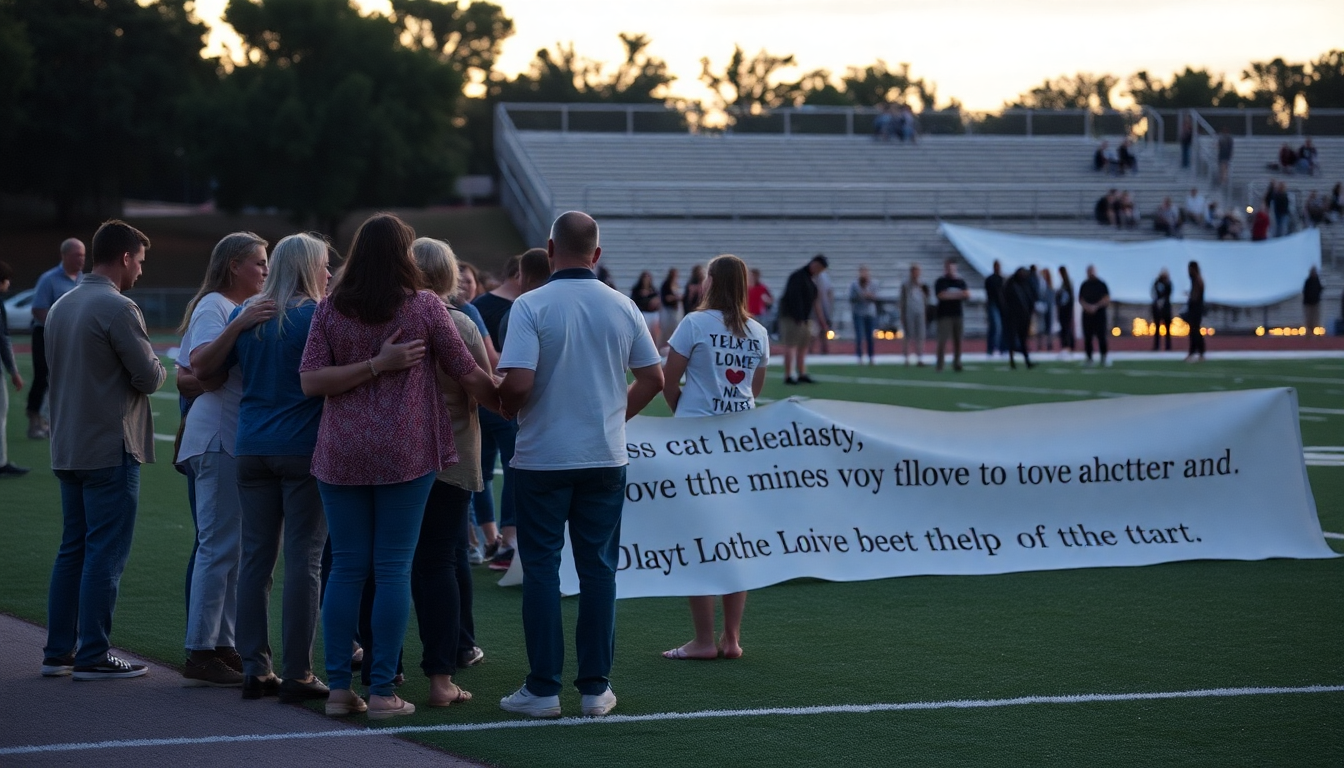Table of Contents
In the wake of one of the deadliest flash floods in recent U.S. history, the Texas community of Kerrville came together at Tivy Antler Stadium to honor the memory of at least 120 lives lost and to pray for over 160 individuals still unaccounted for. This heart-wrenching tragedy struck during what is typically a festive Fourth of July holiday, turning joy into profound sorrow.
A Gathering of Grief and Support
On Wednesday evening, the vigil in Kerrville drew hundreds of attendees, including grieving family members, local clergy, and compassionate volunteers. Youth minister Wyatt Wentrcek shared his thoughts on how the disaster affected their tight-knit community, saying, “Our communities were struck with tragedy literally in the darkness.” The emotional atmosphere was thick, with attendees wearing blue shirts that read “Tivy Fight Never Die,” along with green ribbons to honor Camp Mystic—a century-old girls’ camp that tragically lost at least 27 campers and counselors in the floods. Heartbreakingly, five campers and one counselor remain missing.
As the community grieved, Ricky Pruitt from the Kerrville Church of Christ highlighted the stark contrast between the stadium’s usual festive events and the somber purpose of that night, remarking, “Tonight is very different than all of those nights.” His words resonated deeply among those present, as they sought comfort in each other while search crews tirelessly continued their efforts to locate the missing.
Search and Recovery Efforts
The search for the missing involved teams on foot, horseback, and in the air, all diligently combing the Guadalupe River. Search dogs worked through debris and thick vegetation, but as days went by, the hope of finding survivors began to fade. Officials recognized that the focus had shifted towards providing closure for the grieving families.
Meteorologist Bob Henson emphasized the seriousness of the situation, pointing out that this flood marks the deadliest inland flooding event in nearly five decades, surpassing the tragic 1976 Big Thompson Canyon flood in Colorado, which took 144 lives. The search was further complicated by the fact that many individuals who were in the area during the holiday had not registered in camps or hotels, making it even more challenging to track the missing.
Reflections on Preparedness and Accountability
Governor Greg Abbott faced mounting criticism over the state’s flood preparedness, particularly regarding the timeliness of warnings and the effectiveness of evacuation measures. He assured residents that accountability would be sought for the events that unfolded, but emphasized that the immediate priority was to recover those still unaccounted for. Abbott called on state legislators to consider a new flood warning system and to enhance emergency communication networks as part of his commitment to improving responses in the future.
Discussions about flood preparedness have been ongoing for years, with local officials considering the implementation of a flood siren system. Unfortunately, previous concerns about costs and noise led to shelving this crucial initiative, a decision that is now facing intense scrutiny in light of the recent disaster. In a show of solidarity, U.S. President Donald Trump pledged full federal support for recovery efforts and is expected to visit the affected areas soon.


